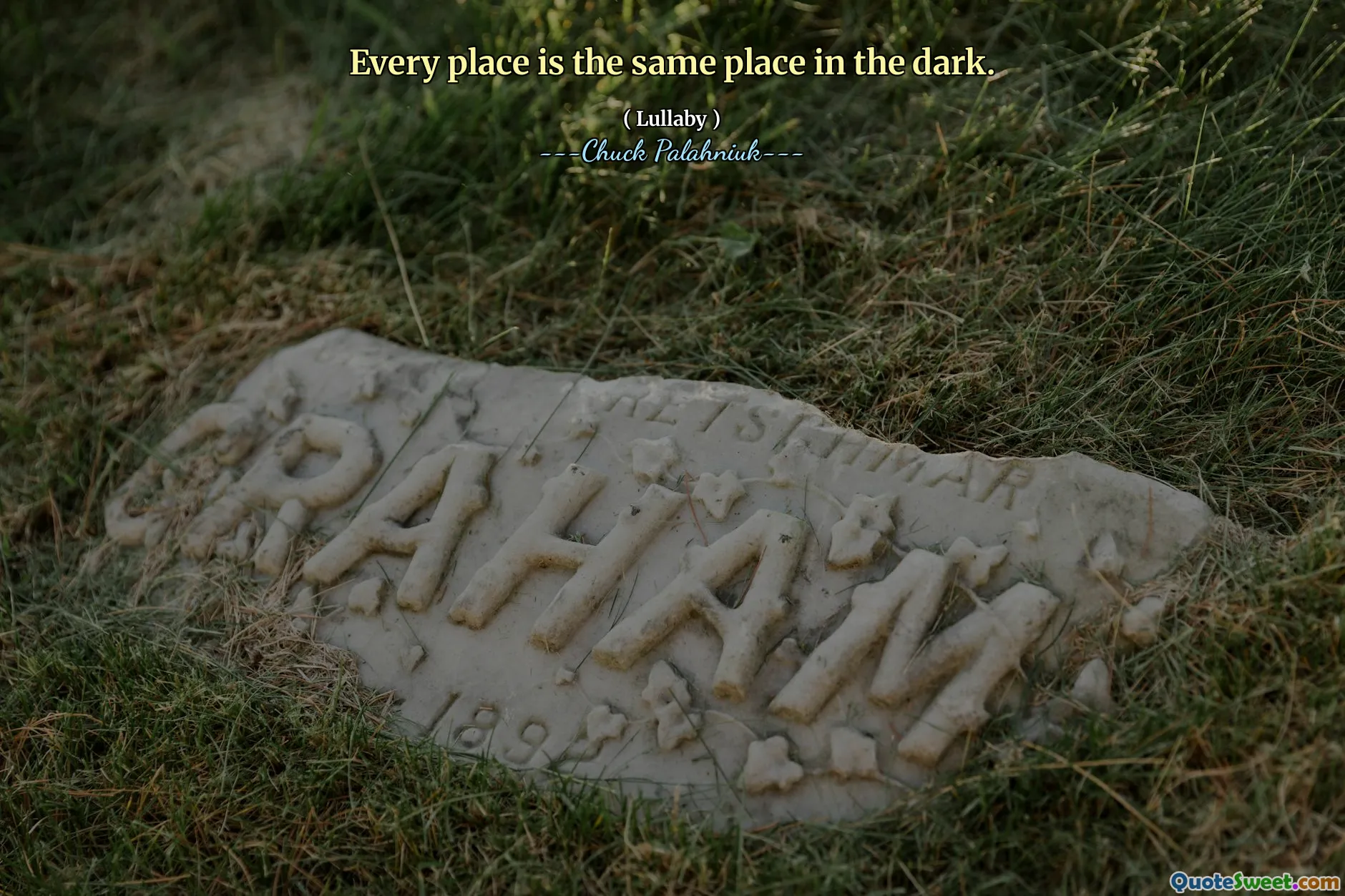
Every place is the same place in the dark.
This quote offers a profound reflection on the universality of experience and the perspective-shaping influence of darkness or uncertainty. When we are in the dark—whether literally or metaphorically—our differences often diminish, revealing the common human struggles and truths that transcend geography, culture, and circumstance. Darkness has a way of stripping away superficial distinctions, exposing the core of our shared existence. It suggests that, beyond the surface levels of our environment or societal roles, there is a fundamental sameness in how we experience fear, hope, despair, and longing.
From a psychological point of view, darkness can symbolize the unknown or subconscious parts of ourselves. In such moments, the boundaries that separate one person from another blur, emphasizing our intrinsic connectedness. This idea can be both comforting and unsettling; it reminds us of our common vulnerability but also highlights the universal nature of human adversity.
Living in a world filled with external distractions and social masks, we often forget that beneath the layers of civilization, our core experiences are remarkably similar. When overwhelmed or in moments of true introspection, one might realize that the differences that seem vast in daylight are minor in the dark. This perspective encourages humility and empathy, urging us to see others not as distant or fundamentally different but as fellow travelers caught in similar circumstances.
Ultimately, the quote highlights how darkness reveals the essence of what it means to be human. It invites us to embrace our shared vulnerability and to find solace in the universality of our experiences. Recognizing this can foster a deeper sense of compassion and collective understanding in a divided world.







